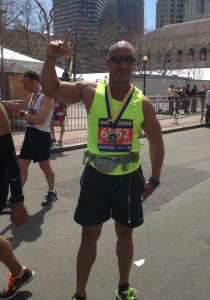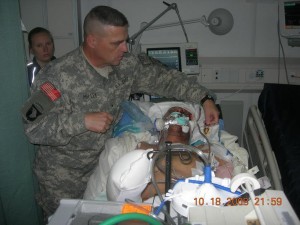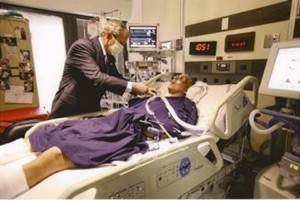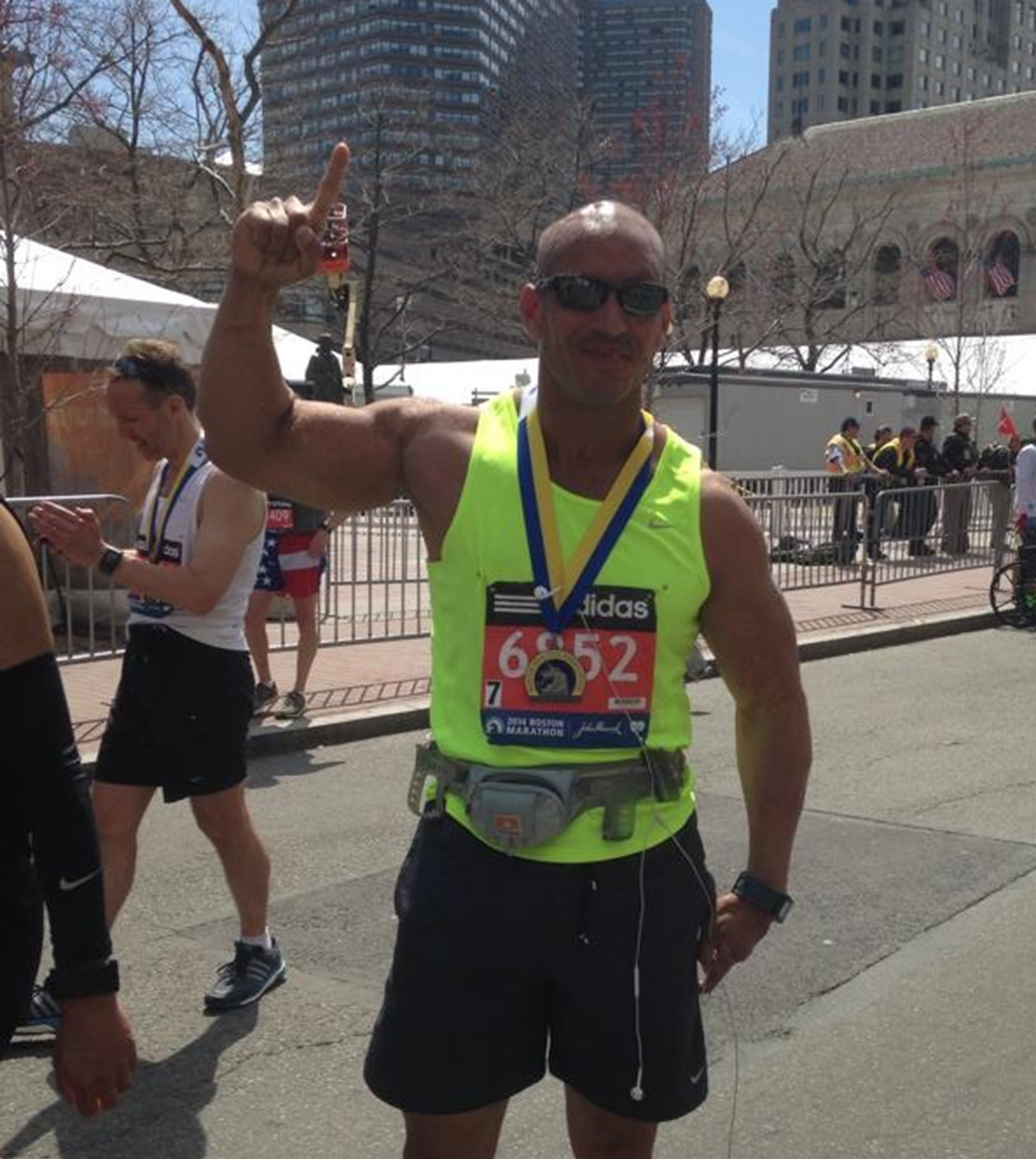By Kenney Kost/editor-in-chief

Six years ago, South Campus student Carlos Colon was lying in a hospital bed in a coma after his company was ambushed in Afghanistan and his vehicle was hit with a rocket-propelled grenade.
Last week, Colon completed the Boston Marathon, his third complete marathon this year.
At one point given a 30 percent chance to survive, Colon is making the most of his second chance at life.
“It meant a lot to me,” he said of running the Boston Marathon. “My kids see that. It’s to show them that I’m going to keep going. I started school to show them it’s important. Everything I do is for my kids.”
October 18, 2008, started out like any other day for U.S. Army Sgt. Colon. His company was on the last day of a three-day mission into a city in Afghanistan.
His combat team encountered light resistance on the first two days in the city, Colon said. On the third day, they reached the far side of the city and were returning to post when they spotted what appeared to be an improvised explosive device.
“We could see it, but it was a decoy to make us deploy our choppers,” Colon said. “Once we passed it and got closer to the edge of the city, we got ambushed. Guys with AKs [AK-47], pistols and then our truck got hit with an RPG [rocket-propelled grenade].”
Colon was in the gun turret seat of an armored military vehicle, and the RPG hit a metal panel right next to his head, he said, shattering the glass and knocking him unconscious.
“I was the worst. Everyone else really only had shrapnel injuries,” he said. “I was in a coma for the first month and stayed inpatient through April. Then I was outpatient for another two-and-a-half years.”
On June 25, 2011, Colon medically retired from active duty. He completely lost his left eye. His left hand was badly wounded, leaving just one working finger and his thumb, and he has several large scars on his head and body. Then-President George W. Bush awarded him the Purple Heart while he was unconscious.
He started taking classes on South Campus last fall and is currently in his second semester. He said he started working out and running again as a way to prove to himself that he could overcome anything.
“Basically, I do it to show that nothing can bring me down,” he said.
The running started out as a few miles here and there, he said. Then he worked his way up to 13 miles, or a half-marathon. That is around the time he found out about an organization called Operation Give-Back.
“It is an organization that does a lot of different things to assist combat veterans,” he said. “Some of the guys in there heard my story and invited me to a relay called a Ragnar Relay. We did the one that goes from Maryland to Washington, D.C. There were 12 of us on a team.”
Ragnar Relays around the country have teams of six or 12 who run forest trails across various states.
During that event, he met two more men not associated with Operation Give-Back and expressed his desire to run the Boston Marathon, he said.
“These guys were great,” he said. “One of them gave me his race package to run the Boston Marathon because I couldn’t qualify, and the other picked me up at my sister’s house in Connecticut and drove me to Boston so I could run. They just did it to do it for me, just from their hearts.”
Colon said he ran the Cowtown Marathon in February in three hours, 32 minutes, and a small Dallas marathon a few months earlier. But neither compared to the experience he had in Boston.
“The whole city was on lockdown pretty much because of what happened last year,” he said. “But the entire 26 miles, there were people cheering and wanting to shake your hand. I had to block it out most of the time so I could finish because there were just so many people.”
With a time of three hours, 29 minutes, Colon beat his personal best in Boston and said he felt amazing.
“It’s awesome, you know. I trained hard so I could finish the race,” he said.
South associate professor of history Armando Villareal said he admires Colon’s courage and drive to constantly do better.
“The man refuses to back down,” Villareal said. “He needs to be recognized as a student, combat veteran and as a human who refuses to be defeated. He makes me want to run a marathon.”
Colon plans to transfer to the University of Texas at Arlington for accounting and said he has been looking into triathlons as the next major goal to accomplish.
When thanked for his service, he simply replied, “You’re welcome. It was my duty, and I would do it again if they would let me back in.”



